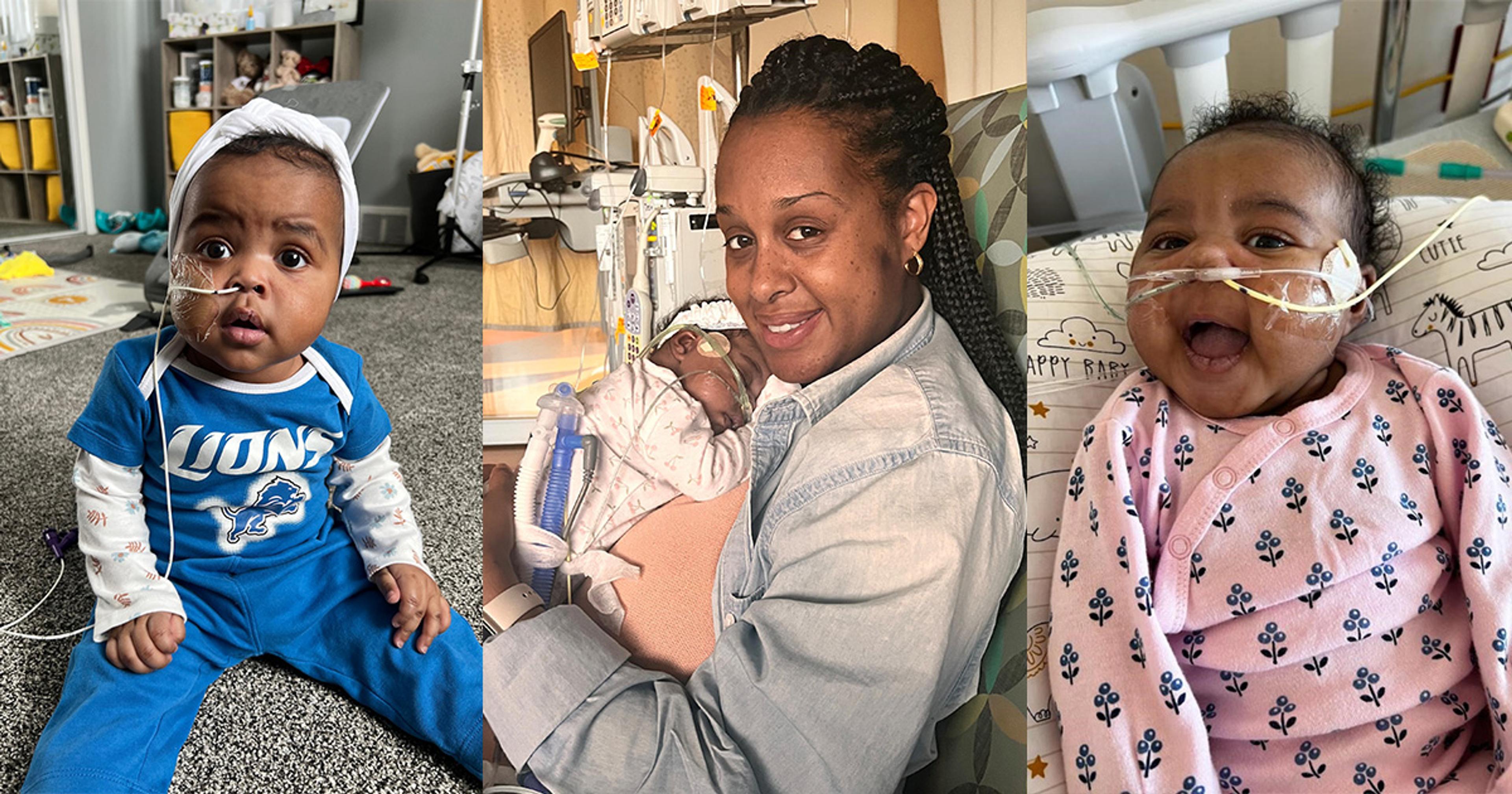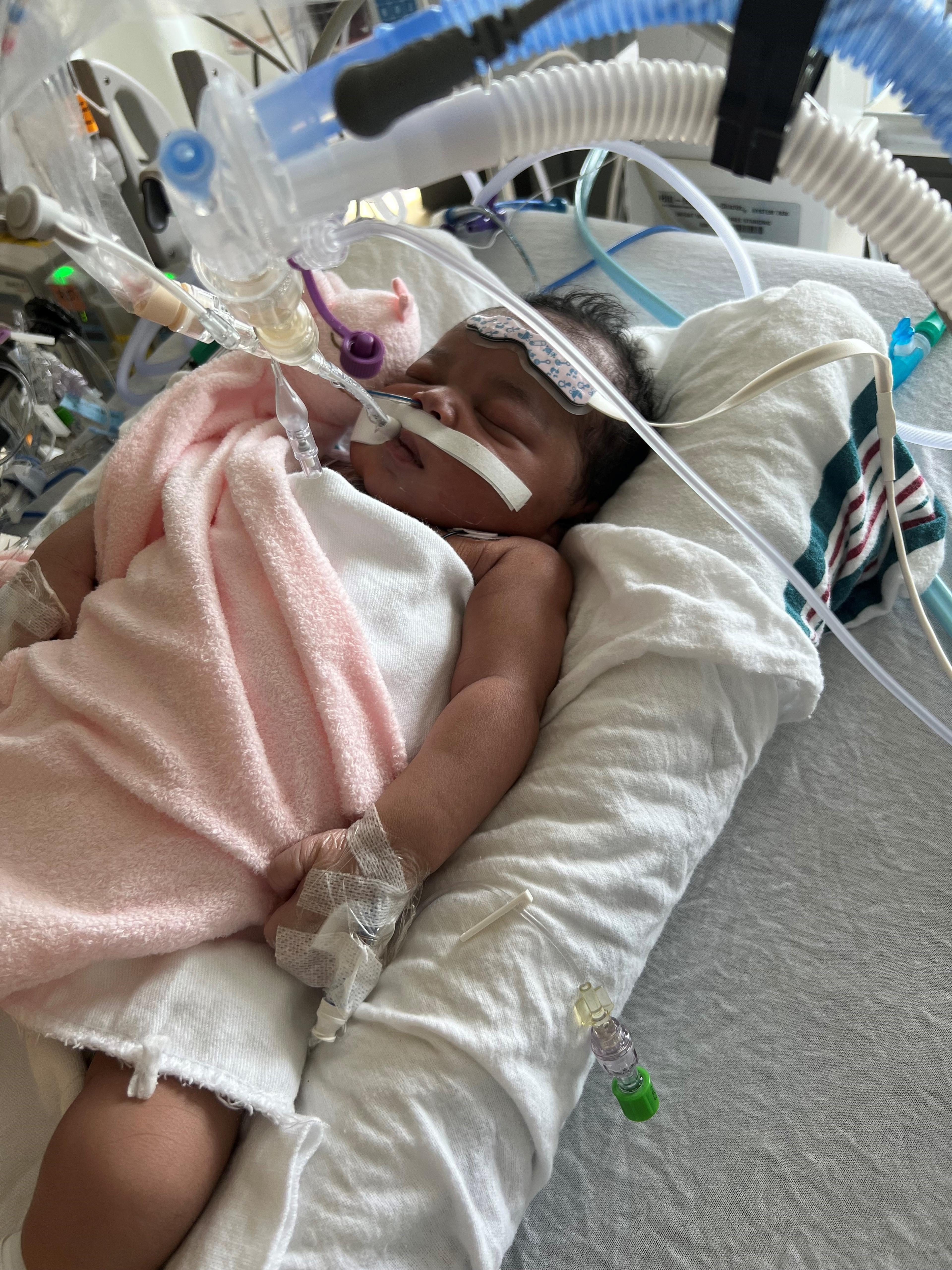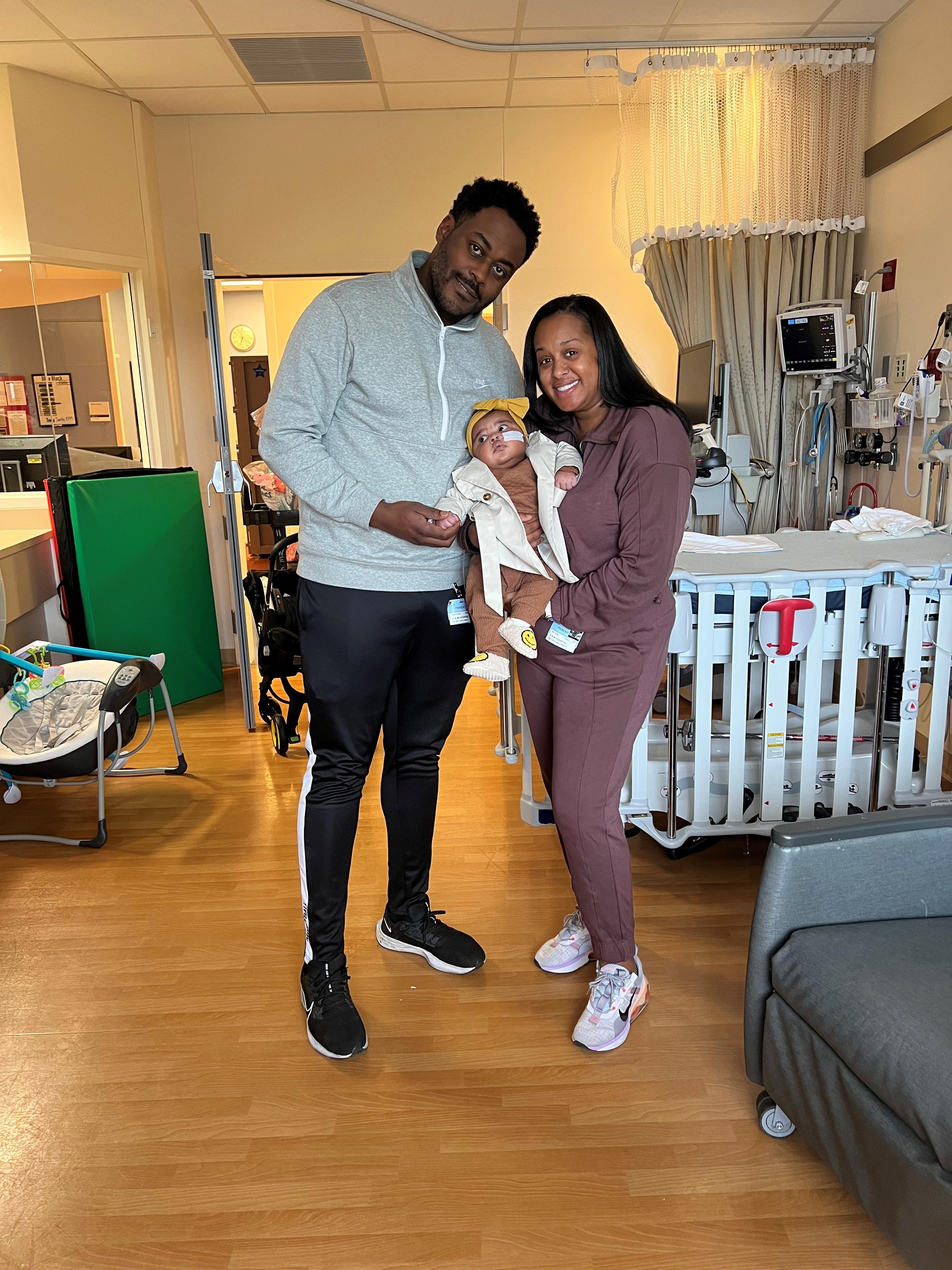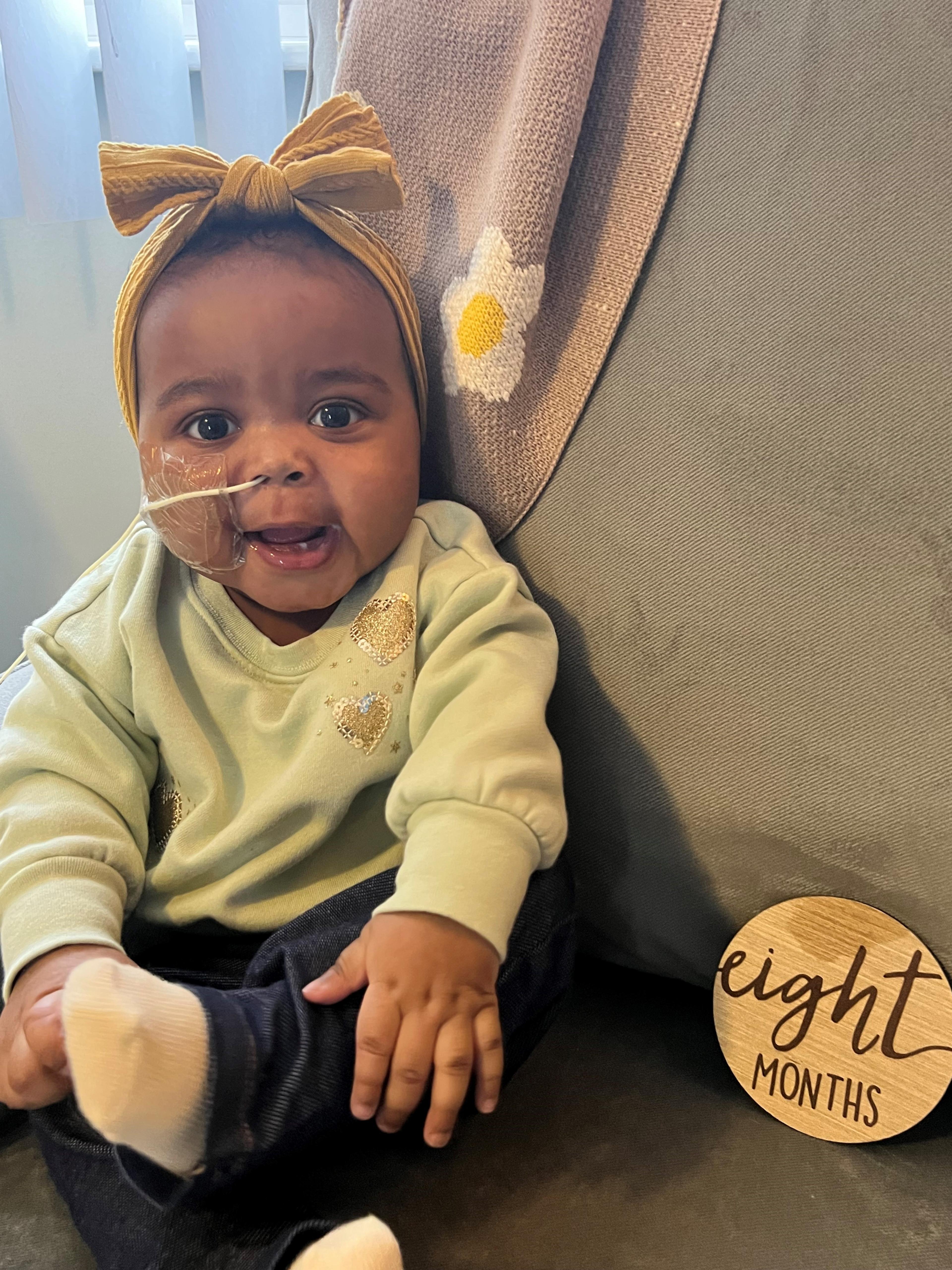‘She Has Taught Me So Much:’ Michigan Mom Embraces Challenges of Parenting a Child Born with Severe Congenital Heart Defect
Jake Newby
| 5 min read

Mallory Applewhite knew something was wrong during her 20-week anatomy ultrasound when the technician kept leaving the room and coming back.
This happened two or three times. Once the tech figured out the issue and asked the young mother-to-be to meet her in her office a few moments later, Applewhite’s heart began to sink.
“That’s when things got serious,” Applewhite said. “They told us that the left side of her heart was significantly underdeveloped.”
Applewhite’s baby was diagnosed with hypoplastic left heart syndrome, a severe but treatable congenital heart defect. Hypoplastic left heart syndrome affects roughly 1 out of every 3,850 babies born yearly in the United States, according to the Centers for Disease Control and Prevention (CDC).
“When we got the diagnosis, it was devastating,” Applewhite said. “Earthshattering.”
Heart disease – or any chronic health conditions for that matter – does not run in Applewhite’s family, nor does it run on her husband’s side. The CDC states that the cause of heart defects like hypoplastic left heart syndrome among most babies are unknown. Some babies have heart defects because of changes in their genes or chromosomes.
Maddison Applewhite was born in the spring of 2023, a blessing to her parents and her family. “Maddie,” as she’s affectionately nicknamed, was prone to standard symptoms of hypoplastic left heart syndrome soon after birth, like breathing problems, a weak pulse and a rapid heartbeat. Applewhite said the first few months of her daughter’s life led the family down a “rocky road.”

Navigating the early challenges of a congenital heart defect
Applewhite praised doctors at University of Michigan’s Mott’s Children’s Hospital for their round-the-clock care and attentiveness to Maddie during her initial days of life. The journey was and is an ongoing learning experience for Applewhite.
“The biggest thing I learned through this journey is the ultrasounds – while in utero – are helpful, but they don’t paint the whole picture of her condition,” Applewhite said. “It wasn’t until she was delivered that they were really able to see the severity of her condition. And so it was determined five days after she was delivered she’d be having her first open-heart surgery.”
Applewhite gets choked up thinking back to Maddie’s first of two open-heart surgeries.

“Her first surgery was very challenging,” she said. “With hypoplastic left heart syndrome, essentially the surgeries that are required are changing the functioning of the heart. And it’s done in a series of three surgeries. The first surgery is one of the riskiest ones. It’s about redirecting the blood flow through her heart.”
Over the course of the surgery, Maddie experienced arrhythmias, also known as irregular heartbeats. Applewhite said her daughter’s heart rate reached 290 beats per minute at one point, which is more than 100 beats faster than the typical resting heart rate for a newborn. The first surgery was such a struggle that doctors moved Maddie’s second surgery up by a few weeks.
The second surgery was less touch-and-go and Maddie is in a good place with her condition. Her third surgery will occur when Maddie is a toddler, between ages 2 and 4. Applewhite said the short-to-long-term outlook for Maddie is very positive.
“They have shared with us that Maddison will live a full and vibrant life,” Applewhite said while holding a playful Maddie in her lap. “She’ll be able to enjoy sports. She’ll be able to go to prom. What will happen is Maddison may have to stop in the middle of a sporting game to catch her breath and let her heart settle a bit.”

“She has changed my life for the better:” Reflecting on Maddie’s year-one journey.
What can now be viewed as a coincidence in hindsight, Applewhite was hired by the American Heart Association’s Michigan chapter a couple of years back, well prior to Maddie's birth. She now serves as the Michigan AHA’s vice president of community impact.
Given Maddie’s diagnosis, Applewhite is more invested, passionate and authoritative in her position than she ever thought she’d be after first taking the job. She also considers herself a stronger, more well-rounded person, just for being Maddie’s mom. Her first year as a parent wasn't without heartache, but it was also extremely rewarding.
“This little girl has opened my mind and my heart to the possibilities of dreaming and believing and having faith,” Applewhite said, before tearing up. “She has taught me so much. And I’m so blessed to have her in my life. She’s so brave and resilient. She’s such a happy baby, as you can see. Super chatty. She has changed my life for the better.”
When it comes to parenting a child with a congenital heart defect, Applewhite advises moms and dads to ask as many questions as possible.
“Be inquisitive. No question is a dumb question,” she said. “This is your baby, you know them better than anyone. If something seems off and weird, not right, say something, speak up.”
Maddie’s team of doctors always made Applewhite feel like she was part of the care team, and that’s partly because Applewhite was always around and always engaged. Her advice for any parent – specifically those to a child with a heart condition – is to behave the same way.
“Be there, speak up and ask questions.”
Photo credit: Mallory Applewhite
Related reading:
Related reading:





